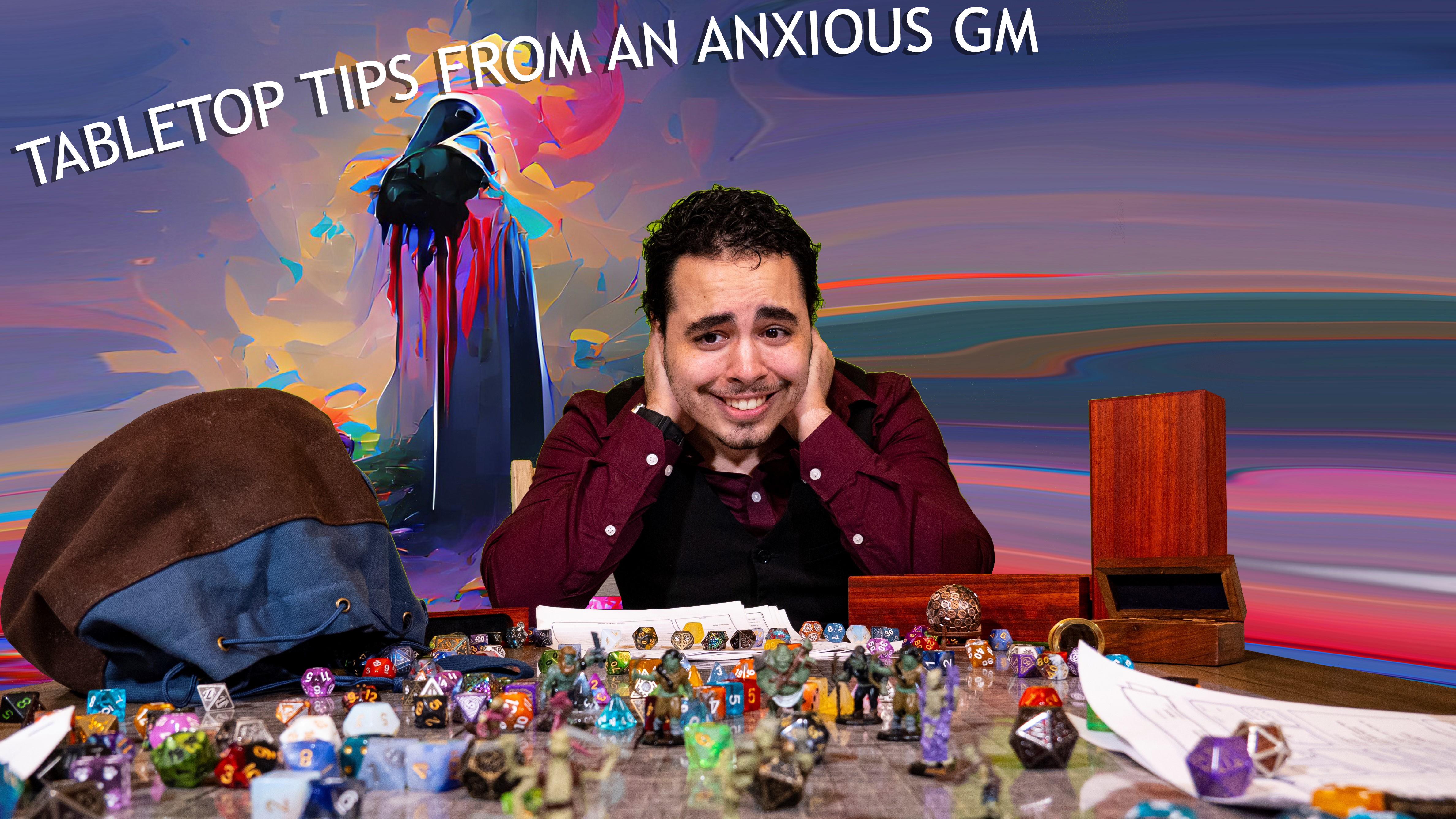How do I deal with player character (PC) death? Tabletop tips from an anxious GM
A character died in combat or by making a wild decision? Here’s how to deal with that

D&D and TTRPGs can get super tense when a player character's (PC) life is on the line. It can be tricky to tackle the severe implications of that and the consequences that follow. Well, let’s talk about it — how exactly do you deal with PC death and also keep your players happy? Because it’s not a happy moment, and while some players are okay with that, others aren’t. As someone who struggles with anxiety and depression — a combo that is less than ideal for a journalist or a game master juggling seven different players in a six-hour Dungeons & Dragons game — it can be a challenge to assert yourself as a GM in these tough moments.
In this week’s column of Tabletop tips from an anxious GM (all of which can be found on our DND tips hub), I’ll be answering a question posed by one of my players, asking “How do I deal with PC death?”
One major factor you have to keep in mind when a PC dies is that you’re not just playing a game, you’re telling a story, and you’re not doing it alone. You’re telling that story with the players at your table, and they have just as much right to that story as you do. Let me explain.
TL;DR
Communicate with your players. Are they okay with character death? No? Okay time to get creative. If they do die, use their death to trigger the next arc. Send the PCs on an adventure to save their fallen companion. If you’re wondering now, what are the real consequences of dying? Well, think about it — if you died and you saw what was on the other side, how would that affect you as a person? Maybe run a solo one-shot for the PC, and give them an interesting story to tell — maybe even one that jumps into the next arc.
Okay, now what happens if everyone dies? Even better! That’s a whole arc right there that your players have given you. Show them the consequences of their failure, and write a narrative about what they can do to redeem themselves. Now if you’re thinking that deaths are meaningless and you can kill them whenever — stop. Don’t kill thoughtlessly. Death should have narrative significance, and there are way more interesting consequences than death, like getting captured, innocents dying, or being robbed of precious magic items. If you can’t kill off PCs for good — traumatize them (with permission, of course).
How to deal with PC death — An in-depth look

Communication. You should have talked about PC death during your Session 0, which is where you set expectations and limits. The information you want to gather here is whether or not the player is comfortable with character death. Throw out any preconceived notion about keeping the sanctity of the narrative or the lack of consequences without death. Your heroes can live forever, but the true consequences of that are far more interesting, you just have to get creative.
Get creative. I’m okay with my PC dying in a game, but if you have another player that is uncomfortable with character death, what happens when their character does die in combat? Well, they die. And guess what? You get fresh new content, because now the party has to go on an epic quest to save their party member’s soul from the great beyond! It doesn’t have to be that exact quest, but you get what I mean. The point of this is to keep the story flowing naturally, and not to break the immersion of roleplay. You’re keeping your player’s feelings intact while also creating a cool adventure. You can even let that player roll a new character for a short time until they save the soul of the dead PC.
Sign up to receive The Snapshot, a free special dispatch from Laptop Mag, in your inbox.

The consequences of dying. The consequence of death doesn’t have to be death itself. Like I said, get creative. Talk to your player and ask them where they see this character going in the narrative, and what kind of effects death could have on them. Are they a changed person when they come back? Maybe they experienced something in the great beyond? You could even run a whole solo adventure that tells the tale of their journey, and maybe they received premonitions of a great evil coming to the land. Character death is a gift, an opportunity to spice things up. Use it!
Oops, TPK! So what happens when the whole party dies? Does the campaign just end? Nah, screw that. You know what's better? Watching those PCs witness the consequences of their failure. Nothing drives a party's motivation more than vengeance or redemption. A total party kill (TPK) can take the story in an unexpected but interesting direction. It’s your opportunity to give your PCs purpose, and show them that their actions matter. The campaign will have meaning regardless of whether the PCs die or not, you just have to deliver those consequences properly, and you can’t pull any punches. Just make sure you keep in mind your list of player limits while you do this.
I experienced a TPK as a player, and it was the best thing to happen to that campaign. It gave us the best arc in that story, and one of my favorite character moments. At the end of the arc, my favorite pirate captain sorcerer ingeniously fixed a broken timeline and a planet (a result of losing in the previous arc) in a way that my own GM couldn’t even figure out. It was the coolest moment of my roleplaying career because we were given the option to make a new world, but my character turned everything around with such a clutch, multi-layered plan that almost got everyone killed. But it worked, and we saved the world.
A consequence of losing doesn’t have to be an end to a character’s story, so keep that in mind as you’re plotting your next deadly encounter.

Also, don’t kill thoughtlessly. There’s nothing less satisfying than dying for a stupid reason, like getting killed by a guard. No, don’t do that to your players. This is why you need to tread lightly while keeping level 1 combat fun. Even if the PC is going to come back anyway, the death itself should be powerful, meaningful, and intense. You want to engage your players in the middle of an arc, not kill them. If your PC does something that needs to be addressed with a consequence, there are plenty of things you can do that doesn’t involve killing them. Like throwing them in jail, putting a bounty on their head, making them wanted in cities, stealing their items, capturing them, threatening loved ones, etc. There are a lot of roads you can take the narrative down that don’t involve killing off a PC in a way that leaves a bad taste in everyone’s mouth. Remember, you’re telling a story about the heroes, but you’re also telling a story about your world, and while the heroes can remain constant, their actions should always have consequences, for better or worse.

I hope this helps new players and GMs out there who are just jumping into TTRPGs. If you liked this column and want to see it continue, you can send me your own questions concerning mechanical, narrative, or social issues in the tabletop gaming space. You can email me at rami.tabari@futurenet.com or find me on Twitter.

Rami Tabari is the Reviews Editor for Laptop Mag. He reviews every shape and form of a laptop as well as all sorts of cool tech. You can find him sitting at his desk surrounded by a hoarder's dream of laptops, and when he navigates his way out to civilization, you can catch him watching really bad anime or playing some kind of painfully difficult game. He’s the best at every game and he just doesn’t lose. That’s why you’ll occasionally catch his byline attached to the latest Souls-like challenge.
